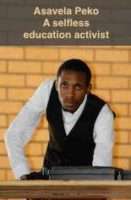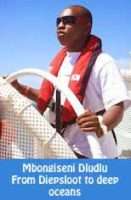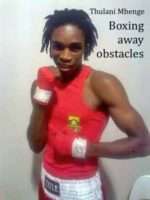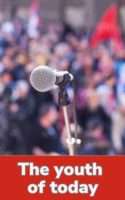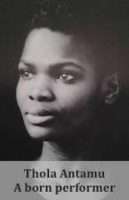How heart-warming it is to know that some people are fighting so hard for better education that not even death threats can get in their way. Asavela Peko (23) is an example.
He’s from Delft in Cape Town, and was only nineteen when he established an organisation that aimed to, “empower and transform the youth through education.” It was the Learners Movement of South Africa (LEMOSA).
“Delft had a very poor quality of education at the time. The classes had no windows or doors and there was a staff shortage as well. LEMOSA was established to fight for the students’ rights because their RCLs (Representative Council of Learners) were failing them.”
At one point the organisation embarked on protests, which turned violent, and Asavela had to spend nine days in prison. He claims that at this time some teachers plotted to erase him – permanently.
“One of the senior teachers I clashed with wanted to have me killed. His car would be seen roaming around my house at night, and people spoke. But God said no, my work is not done here on earth. We had exposed their corruption and irregularities, hence they were infuriated,” he maintains.
He was later released because there was no evidence that directly linked him to the violence and Asavela eventually finished his matric in 2011, wrapping up a testing chapter of his life.
Life had been a continual struggle for survival. “I was raised by a single parent, alongside my two siblings. Sometimes my mom didn’t know where we’d get school uniforms or Christmas clothes. We didn’t even get pocket money like other children,” he recalls. Not having electricity was their daily struggle, and their shack was burnt several times.
However, he believes that his past wasn’t meant to harm, but to humble him. “My background makes me want to reach out and lend a helping hand to those who’re needy. Not because I have everything, but because I once had nothing. It’s much easier to relate to poverty if you once went to bed hungry.”
There is another reason too; at a young age life taught young Asavela a harsh lesson that couldn’t easily escape his mind.
“A tragic accident happened when I was only thirteen. A car ran over me and I was left with two broken legs. That was my wake-up call; that’s when I got to realise that life is too short indeed. That’s one of the reasons I want to be there for others, while I still can,” he says.
Talking about extending his helping hand, Asavela is currently in the Eastern Cape, trying to establish another LEMOSA branch. “We need people to develop our rural areas and that’s why I came here. I manage overall operations of LEMOSA. I need to ensure that we uphold and retain our accountability and reputation.”
One of the several programs that LEMOSA runs aims at equipping the youth with ICT skills. “We saw that more people will lose [out on] jobs if they are not technologically savvy, because technology has taken over.”
LEMOSA holds the sentiment that you cannot change the world if you don’t begin with people’s mind-sets. For example, “Delft is a multiracial community but people aren’t as united. We’re hoping that LEMOSA can help mend the bridges that were burnt by the apartheid regime and bring people together. We’re for change, and are colour-blind in our approach. We help out regardless of race.”
Asavela didn’t miss the chance to talk about the recent racist remarks in the media. “This racism news broke just few weeks after we celebrated the Day of Reconciliation. But, how do we celebrate something we haven’t even obtained? South Africans haven’t reconciled, we’ve just been tolerating each other.”
He says the solution is just a discussion away: “We should begin to talk about racism and our past injustices. Covering the wound doesn’t heal but it allows for infection. We can only embrace our similarities once we address our differences. We’ve been quiet for too long and it’s time to have these discussions.”
Humans are like a pencil – life takes them through the sharpening process and they come out even sharper. And Asavela is no exception.
“I’m grateful for my past because it has nurtured and moulded me into everything I’m today. We all need to start somewhere in life. My background still motivates me to this day,” says the enthusiastic young man.
Just when you thought Asavela’s story couldn’t get more inspiring, he reveals that he doesn’t earn any money through LEMOSA – and he has been there for five years.
“My work is driven by passion; there’s no monthly salary that fuels it. I don’t earn a cent for the work I do. LEMOSA isn’t making a cent. This work has no financial benefit for me but it surely does have personal development. My family is supportive because they know that God sent me to empower this disgruntled continent. Money shouldn’t stop you from doing great work,” he adds.
What is Asavela’s inspiration? He attributes his parents for who he has become – and yes – that means his ‘father’ too.
“I thank my parents for the person I’ve become. I thank my dad for his absence – because maybe I wouldn’t have worked this hard if I had everything I wanted. Privilege would have made me become one of those selfish kids who always say, ‘but that doesn’t affect me’.”
He may have become able to see the positive in his own situation, but he’s worried about the escalating number of fatherless children. “I’m a father myself and I don’t want my son to go through the same challenges I experienced. Our children don’t have to suffer as we did. We need to break the cycle.”
“Your children might grow up and become successful in life, and nothing’s more painful than being rejected by your children at a time when you’ve hit rock bottom. I always aspired to have someone that I can impart my knowledge to and God has blessed me with one,” he continues.
Asavela says that LEMOSA also strives to give guidance and be a parent to all the orphans out there.
“We have a career expo as our one of programs at LEMOSA, reason being that I once enrolled for a law degree in 2012 but dropped out eventually because it didn’t speak to me. We lacked guidance, which resulted in bad choices. I don’t want to see more drop-outs because of uninformed career choices.” He had enrolled for a Degree of Laws (LLB) at the University of the Western Cape. He now urges the youth to, “follow their passion, not what is socially accepted.”
Asavela has written a number of stories for FunDza: “Coincidentally, I found out about FunDza while I was doing research for our students. In primary I used to translate all our isiXhosa poems into English and vice versa. That’s when I discovered love for writing.” He’s been mentored by the prominent author, Sonwabiso Ngcowa, for FunDza’s Mentoring our Future Writers project.
FunDza also sponsors LEMOSA with books, as part of their ‘Popularising Reading’ program. “We couldn’t do it without FunDza’s support. It enables LEMOSA to get the youth informed.”
Still talking about being informed, Asavela says writers need to be good readers themselves. “Writers need to be observant because only then can we be able to accurately capture and execute people’s stories. We need to read so we don’t sound ignorant in our own writing. You can’t write about a topic you know little about.”
Recently, Asavela was a candidate in SABC’s One Day Leader competition. He’s also done a course with Activate Leadership, graduating as what they refer to as an ‘Activator’ plus has completed an Introduction to Business Management course through Northlink College.
“I see it as my responsibility to change my family’s situation for the better. If I could get past these hardships then I’m convinced that I can get through everything. Accept your situation and do less finger-pointing. God doesn’t give you more than what you can chew. He doesn’t give you a yoke that’s above your strength.
“If you still believe that you haven’t fulfilled your purpose in life then just soldier on, no matter what the circumstances, and continue with the fight. Don’t stop when you’re tired. Stop when you’re done,” he concludes.
Asavela’s favourite quote reads: “I don’t judge the life of a man based on how he died, but how did he live; not how much he gained, but how much he gave.” (Unknown author)
***


